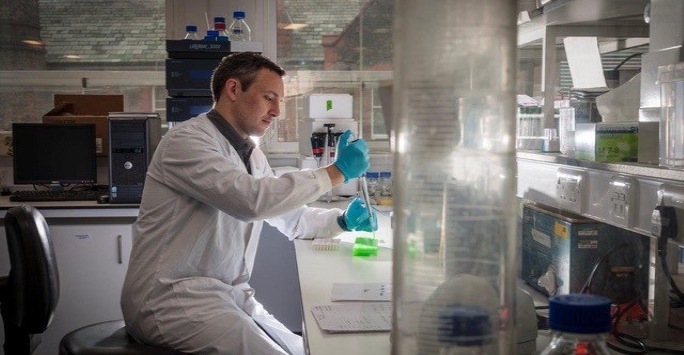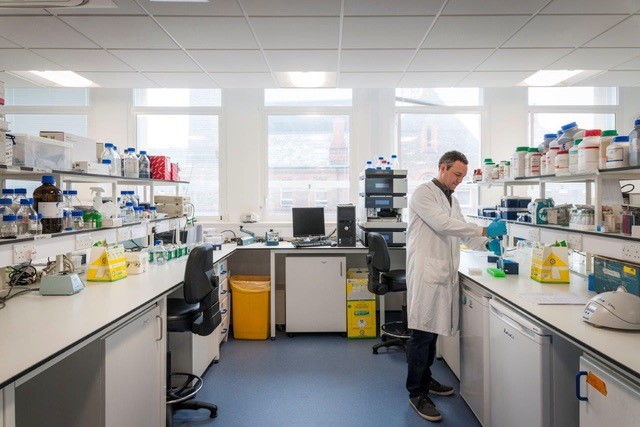World Immunization week
Posted on: 27 April 2022 by Dr. James Austin in April 2022 posts

I’m delighted to have been given the opportunity to highlight the importance of vaccines and immunology during World Immunization week.
During the past few years this has never been as prominent, especially in the face of the recent COVID epidemic and the detrimental societal affects. The main means of escape from these lasting effects were mainly facilitated by the development of vaccines and our developed understanding of the immune system to understand the duration of vaccination protection, how many boosters should be given and identifying the most vulnerable and most in need of protecting in society.
As the most severe effects from COVID begin to diminish, opportunities to research other existing viral causing diseases can now be re-focussed in the aim of achieving similar successes with the development of new vaccines. One exciting project I am currently involved with at the University of Liverpool is in the development of a vaccine for the Zika virus, a disease that can cause birth-defects during pregnancy. This disease is spread by members of the mosquito family that reside in warmer climates. However with the emergence of global warming, it is likely that the mosquito populations responsible may be able to expand into other countries to propagate this disease further. Currently there is no approved vaccine or treatment available for treating the disease, highlighting an urgent need for further research.
The University of Liverpool is leading on a £4.7 million grant to help tackle this issue, provided from the department of health and social care and managed by Innovate UK. The aim is to test two new vaccines in human subjects during a phase 1 clinical trial at Liverpool. Using our understanding of viruses and immunology, we hope to show that these vaccines can provide a two-fold mechanism of protection, to, 1, maintain high durable and lasting T-Cell responses in presence of the vaccine products and 2, generate memory cells capable of producing antibodies that can neutralise Zika virus. Traits that have previously been shown to be effective in the development of other viral vaccine treatments. As in every new treatment, the safety of these vaccines will also be closely monitored to determine their safety in the human population.
In this I will be involved in establishing the assays that will be used to assess the T-Cell responses in the phase-1 clinical trial. It is both exciting and rewarding to be able to contribute to such important research at this prominent time in immunology study. With the likes of COVID and other viral diseases it is encouraging that this work may help protect future generations from such detrimental illnesses in the future. This all stems through harnessing the power of vaccines, which is a comforting thought and highlights the importance of immunization during world immunization week.
Liverpool leads new £4.7m Zika vaccine project
Keywords: immunization, vaccine, immunology, covid, zika, treatment.

